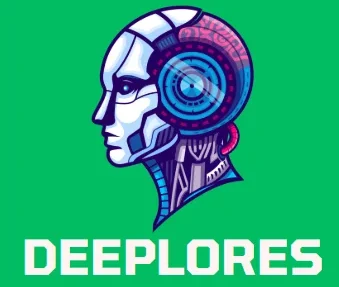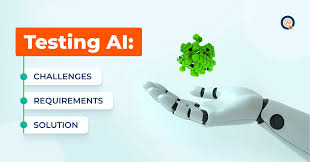What is Meant by Applied Quantum Computing?
In the era of lightning-fast technological advancement, applied quantum computing stands tall as a beacon of innovation. Delving into the intricacies of quantum mechanics, this ground-breaking domain is shaping industries, securing communications, and crafting the future. Let’s navigate this transformative journey together about what is meant by applied quantum computing?
How is Quantum Computing Applied in Real-world Scenarios?
Applied quantum computing is more than just a scientific curiosity. It translates abstract quantum principles into tangible solutions for complex problems. From cryptography to drug discovery, the world is embracing the immense potential of quantum technologies.
What are the Practical Uses of Quantum Computing?
- Quantum Cryptography: Empowering secure communications, quantum cryptography leverages quantum entanglement to ensure eavesdropping is virtually impossible.
- Quantum Machine Learning: Boosting artificial intelligence, quantum algorithms are now enhancing machine learning, offering faster and more efficient data processing capabilities.
- Quantum Simulation: An exceptional advantage of quantum computing, where quantum systems simulate other quantum systems, revealing insights into fields such as materials science and drug discovery.
Can Quantum Computing Solve Complex Optimization Problems?
Absolutely! With the power of quantum annealing and quantum optimization, solutions to previously unsolvable problems are within our grasp. Industries from finance to logistics are harnessing these techniques for tasks ranging from portfolio management to supply chain optimization.
How does Quantum Computing Enhance Cryptography?
Traditionally, encryptions are based on problems difficult for classical computers. Quantum computing, however, introduces new encryption methods immune to quantum breaches. By employing quantum gates and quantum entanglement, data integrity has never been more fortified.
Explain Quantum Machine Learning and its Applications.
Quantum machine learning harnesses quantum parallelism to process vast amounts of information simultaneously. Applications include rapid pattern recognition, faster database searches, and even revolutionizing climate modeling.
What are the Advantages of Using Quantum Algorithms for Simulation?
Quantum algorithms offer unmatched efficiency in simulating intricate systems, from molecular structures to entire ecosystems, accelerating advancements in fields like pharmacology and environmental science.
How Quantum Computing Impacts Artificial Intelligence
One of the most transformative applications of quantum computing lies in its marriage with artificial intelligence (AI). The very fundamentals of quantum physics, such as quantum entanglement and quantum superposition, offer unprecedented speed-ups for many algorithms central to AI. For instance, quantum parallelism can evaluate multiple AI model parameters simultaneously, revolutionizing the training phase of complex neural networks.
Explain the Concept of Quantum Parallelism and its Applications
At its heart, quantum parallelism is the astounding capability of quantum computers to compute multiple possibilities at once. This is achieved by leveraging the inherent property of quantum qubits being in superposition – essentially, existing in multiple states simultaneously. This feature has direct applications in database searching, where a quantum system can scan numerous database entries in one go, significantly cutting down processing times.
Can Quantum Computers Improve Weather Forecasting?
Indeed, quantum computers promise to dramatically refine weather predictions. Traditional computational models encounter limitations in their capacity to simulate every intricate interaction in atmospheric systems. However, quantum simulations allow for much more complex modeling. By capturing subtle atmospheric nuances and running probabilistic scenarios with quantum algorithms, forecasting becomes more accurate and reliable.
What Industries Can Benefit from Quantum Computing Advancements?
Nearly every industry stands to benefit, but a few standouts include:
- Pharmaceuticals: Drug discovery and molecular modeling have been especially cumbersome for classical computers. Quantum systems can simulate molecular interactions at a detail level never before possible, accelerating drug discovery and reducing costs.
- Finance: From optimizing trading strategies to real-time fraud detection, quantum computing can reshape the financial landscape.
- Energy: Quantum computers can aid in designing more efficient energy storage systems, and even in understanding fusion reactions for sustainable energy solutions.
How does Quantum Computing Contribute to Materials Science?
Material properties often depend on intricate quantum interactions at the atomic level. Previously, these interactions were too complex for classical simulations. Now, quantum computers can simulate these interactions, opening the door to discovering new materials with desired properties, be it superconductivity or exceptional durability.
Are there any Quantum Computing Applications in Energy Optimization?
Absolutely. Optimizing energy consumption patterns in massive industrial settings or designing energy-efficient algorithms for smart cities can be achieved with quantum computing. The ability to run multiple energy consumption scenarios and optimize in real-time can lead to significant energy savings and reduction in carbon footprint.
FAQs on Applied Quantum Computing
How do Quantum Computers Handle Error Correction?
Quantum error correction employs unique methodologies like quantum error correction codes and state manipulation to address inaccuracies in quantum computations.
What are the Limitations of Current Quantum Hardware for Practical Applications?
While immensely powerful, current quantum hardware faces challenges like maintaining quantum coherence. Ongoing research in quantum qubits and processors continues to pave the way for more stable quantum machines.
Are there any Quantum Computing Applications in Financial Modeling?
Absolutely! Quantum computing provides efficient solutions for complex financial simulations and risk assessments.
How is Quantum Computing being Integrated into Supply Chain Optimization?
By solving intricate optimization problems in record time, quantum computing aids in real-time inventory management, demand forecasting, and logistics planning.
What Breakthroughs have been Made in Quantum Cryptography?
The establishment of quantum-secure encryption protocols and quantum key distribution methodologies promises an era of unhackable communications.
Also Read: How is Accenture Addressing the Emerging Market for Quantum Computing Technology?
Conclusion: Quantum Computing – A Boundless Horizon
The world of applied quantum computing is one of immense potential and excitement. As we venture deeper into its myriad possibilities, from quantum cryptography to quantum machine learning, we are not just looking at incremental improvements but revolutionary leaps. These quantum leaps, both figuratively and literally, promise a brighter, smarter, and more efficient future for all of humanity.
As we draw to a close, we sincerely hope that this article has served as a valuable reference, assisting you in unraveling the complexities and nuances surrounding the topic of “What is Meant by Applied Quantum Computing?”.





![Quantum Computing for Everyone [2024] 10 Quantum Computing for Everyone](https://deeplores.com/wp-content/uploads/2023/08/Quantum-Computing-for-Everyone--768x432.png)

